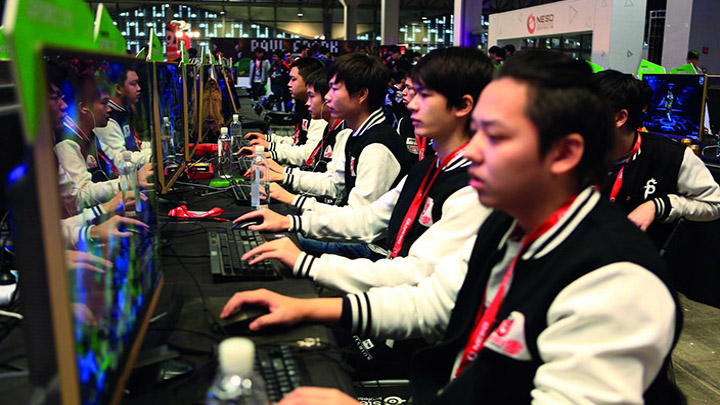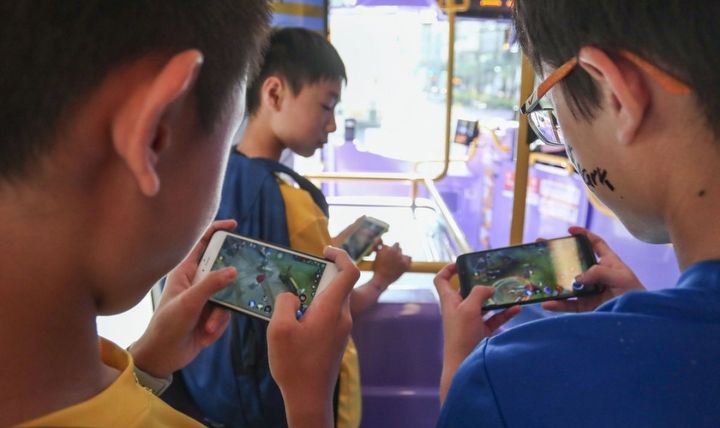China Tightens Control Over Underage Gamers
The Chinese government is once again tightening control over the youngest citizens who like to spend time playing video games. Since September, all developers operating in the country must introduce a player verification system, based on their real personal data, and even a face scan.

For many years, Chinese officials have been fighting against gamers, trying to limit the time they spend in front of smartphone and PC screens. The government's main target is invariably children and teenagers, who, according to the government, are distracted from learning and sports by digital entertainment, leading to social problems and the plague of gaming addiction. However, to a large extent, this is only a convenient excuse. The legislators are mainly concerned with maintaining full control over the youngest citizens, who spend most of their free time in cyberspace.
In the fight for healthy and spirited youth, the ruling party is supported by some parents who are threatened by the government-controlled media with the dangers of games. In November last year, we described the mandatory game time restrictions for underage citizens, which were introduced at that time, as well as the so-called virtual curfew, during which they cannot play online. People under the age of 18 are categorically banned from playing online between 10 p.m. and 8 a.m. Minors can play games for no longer than 90 minutes a week. On holidays and public holidays, this time is extended to 180 minutes per day.
From September, the next and so far most severe stage of restrictions will be introduced. All underage Chinese who want to play the title of their choice available at home will have to prove their identity. This will be possible thanks to special login systems prepared and tested for some time by Tencent and NetEase, which have almost complete control over the domestic video game market. Children will have to give their real name and, in some cases, scan their face with a smartphone camera.

The Chinese government claims that the restrictions are only introduced for the benefit of children.
However, as the first examples of avoiding security features show, the protection system being introduced is not ideal. Forbidden fruit tastes best, so young players bypass new restrictions in various ways. For example, they use false identities, impersonate other people, or use smartphone cafés where gaming phones can be rented for hours. Children from richer families, who are used to being protected from trouble by their influential parents, do not have to worry about the strict rules.
The new restrictions are undoubtedly another log to be thrown under the feet of foreign developers wishing to offer their titles in China. The country is currently the largest and most attractive gaming market in the world, which is worth tens of billions of dollars. It brings substantial profits every year, which have rapidly built up the power of technology giants such as Tencent.
At the moment it is more difficult than ever to officially release a video game in China. Those who are determined to make this move not only have to meet a long and at times absurd list of expectations realted to content of the title but also share the profits with local distributors associated with the government. This includes Tencent, which has already been mentioned several times. In the last six months, only a hundred authorized games were officially published in China, most of which were domestic titles.
The restrictions imposed on the game are also in line with the increasingly tightening course of the Chinese government towards the citizens. The government is afraid of the growing wave of conflicts and protests resulting from the widespread corruption of officials and related companies, slowing down economy and trade wars with the USA and other countries of the world. The party is, therefore, appealing harder and harder at nationalist tones and fighting against overblown foreign influences and "unpatriotic" and "immoral" attitudes of citizens, a great example of which is gaming addiction.
0
Latest News
- Elite Mod lets you play the Tau faction in Warhammer 40K: Dawn of War 2
- Huge Marvel Adventures mod now with new superheroes, including Sentry
- Butcher's Summit, an impressive free diselpunk FPS, has been released
- Free FPS on Half Life engine gets big update
- On February 3, gaming history could change forever. Red Dead Redemption 2 one step away from a major achievement

